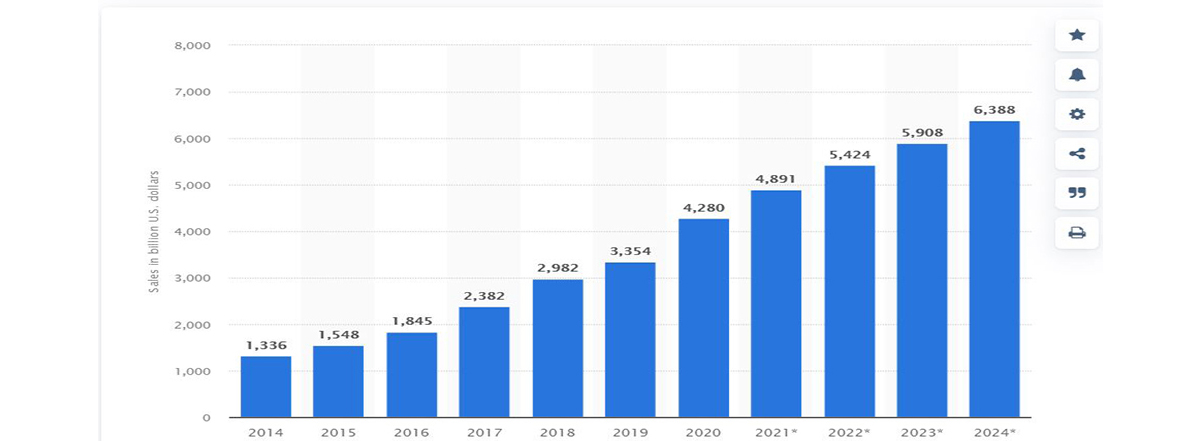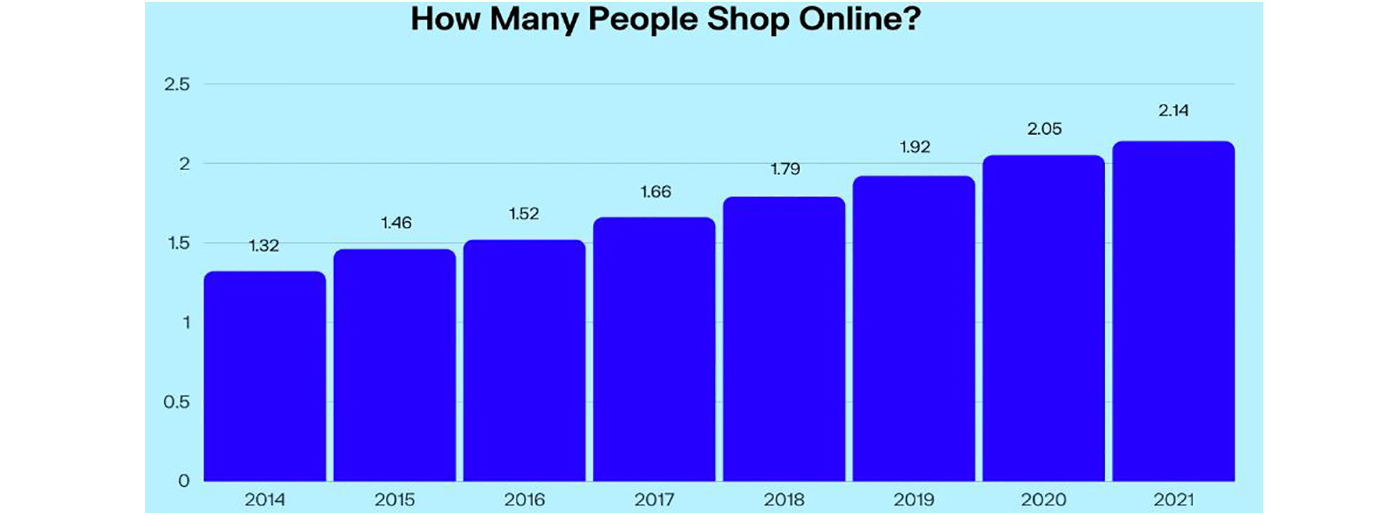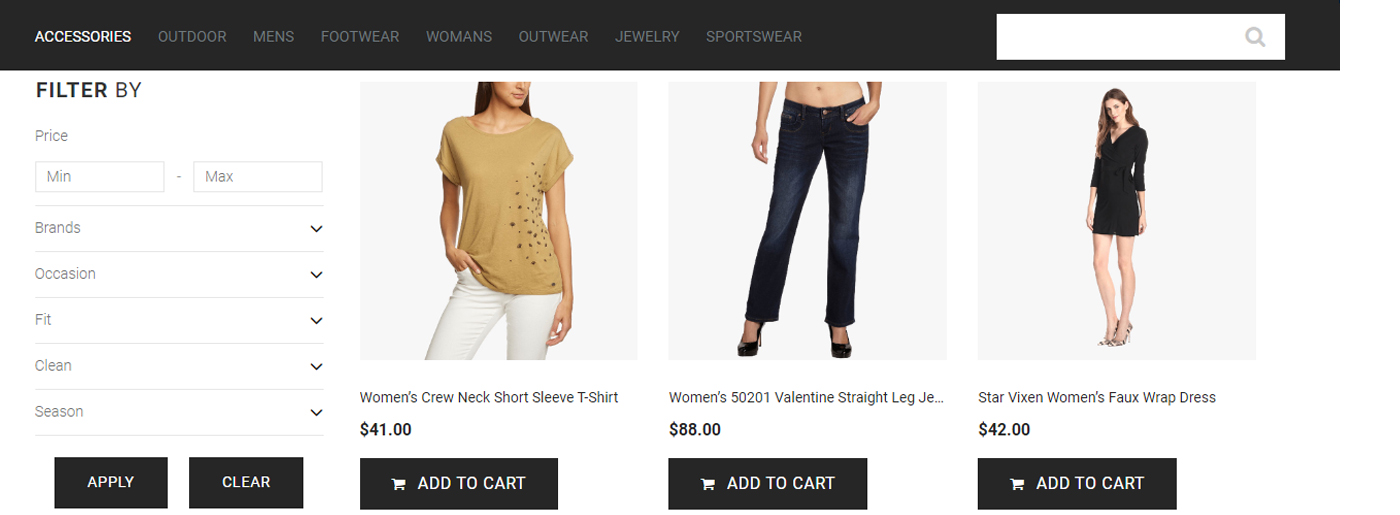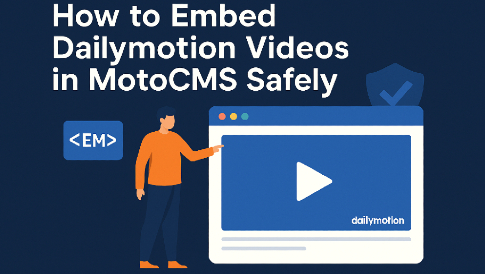In Store vs Online Shopping Statistics Useful For Your Business
Shopping online or visiting an offline store is a choice that most consumers make every day. The capabilities of modern technologies and buyers’ requirements for the quality and fast rendering of services have intensified the confrontation between online and offline shopping. As today many factors influence a purchase decision, including such fundamental concepts as time, ease of delivery, and saving money, we’d like to study and talk about in store vs online shopping statistics and provide valuable recommendations for your business development. We don’t insist on choosing one of the options, but we offer practical ideas for increasing your income by using the best qualities of each option.
Rising of Online Shopping Popularity
…and why should eCommerce be a part of your business?
It isn’t easy to find someone who has never heard of online stores or made purchases through electronic marketplaces. The first online shopping appeared back in the early 90s, and over the years, this industry has gained popularity and turned into a niche with a multi-billion dollar turnover. As the improvement of new technologies has given a powerful impetus to the development of eCommerce, more and more buyers prefer online shopping to in-store ones.

In the charts of Statista, an independent market and consumer data source, we can see the rise in popularity of online shopping. According to worldwide retail eCommerce sales, in 2020, shoppers spent more than $ 4.2 billion on online purchases, and by 2024 those numbers will be close to $ 6.3 billion.
Besides, we are confident that the data on how many people shop online will surprise our readers even more than abstract information about the money turnover of international purchases. The number of online shoppers surpassed the 2 billion mark in 2020, which is more than ¼ of the world’s population! This information demonstrates the growing popularity of eCommerce and the increase in the audience that a business can reach.

Some More Encouraging Statistics
Are you ready for information about the number of purchases made? Statista also offers data on how often users shop online:
- about 20% of users purchase goods and services online more often than once a week;
- 25% of users buy goods and services online more often than once every two weeks;
- about 30% of users purchase goods and services online more often than once a month.
Thus, more than 70% of users make online purchases every month, which dramatically increases the chances of eCommerce gaining loyal customers.
According to data from Google reports, which you can read through trending visual stories, more than 60% of all purchases start online, regardless of whether the user purchases the product through an online store or in-store. Unlimited access to large amounts of information makes it easy for customers to find or select a specific product, study its characteristics and select the right supplier. The Internet presence of your brand is a must-have of our time in any case, and you should be aware that the personal web resource for business today is a necessity rather than “another marketing tool.”
eCommerce Features to Reckon With
Although the increase in the difference between in store vs online shopping statistics demonstrates the gradual transition to eCommerce, offline shopping does not lose popularity, adapting to the needs and requirements of modern society. Moreover, most ordinary consumers still prefer going to shopping centers and malls, purchasing all the necessary goods in one place and without waiting. Nevertheless, online shopping is gradually transforming some traditional business activities into a new format due to its undeniable advantages. Let’s consider some of them:
- Saving time is a massive advantage of online shopping vs in-store shopping, which allows customers to purchase any goods at any convenient moment without wasting time looking for a product and a trip to the shopping mall.
- No queues on weekends and holidays: endless waiting, heavy road traffic, and a shortage of goods at the end are factors that make pre-holiday shopping unbearable for the average customer. In turn, online shopping saves your holiday and saves a lot of nerves and money.
- Low prices: online stores are cheaper to maintain, offering a lower markup for assortment and more profitable loyalty programs. This fact is especially true for high-value products like household appliances.
- Extended assortment. It means that on the Internet, you can find hundreds of different options, suitable analogs, exclusive products, unique services, and original offers from anywhere in the world.
- Choosing a payment method: online shopping is more adaptive in terms of payment methods. Unlike in-store purchases, eCommerce representatives can offer several alternative ways, such as bank transfers and e-currency payments.
Tip: there are different types of online shoppers; therefore it’s essential to optimize your site according to their preferences. Please follow the link to learn what your target audience is looking for.
Some Controversial Points to Note

So why do some people continue ignoring online shopping opportunities, and what should business owners consider when launching eCommerce responsive platforms?
- For some in-store users, shopping is a complex ritual that brings pleasure when visiting offline stores only. People want to touch the goods, talk to consultants, and these feelings are sometimes incomparable with scrolling the eCommerce page.
- Delivery from an online store is another controversial point for in store vs online shopping statistics. Some buyers need a product here and now, while others remain unsatisfied with the quality and speed of delivery.
- Mistakes in ordering and critical non-compliance with customer expectations also contribute to distrust in online shopping. Users are willing to spend more time and money on in-store shopping to check the quality of a product.
What Can You Do to Fix It?
- Provide your users with various ways for interaction, including the ability to communicate with an online consultant or support team. It will also help minimize order errors and correct them in time.
- In some cases, in-store shopping is necessary, for example, when shopping for clothing, jewelry, and luxury goods. Be prepared to open at least one small showroom for shoppers to visit.
- Choose reliable and trusted suppliers and representatives, control the receipt of goods, and the quality of delivery. It is sometimes helpful to have a personal courier.
- Be honest with your customers, provide them with user-centered design & straightforward access to all information they need, don’t forget about feedback to testimonials & reviews, and keep the transparency & data actuality. Regular customers are the primary source of income for most businesses, regardless of in store vs online shopping statistics.
Multifunctional Business Solution
What if we stopped comparing online shopping vs in-store shopping and focused on how these options interact? Statistics show that the eCommerce industry is actively developing but still has some compelling shortcomings. That’s why we propose studying this as one of the business tools that can perfectly complement the in-store commercial activities and expand the possibilities.
Powerful Tool for Small Businesses
Perhaps, in store vs online shopping statistics is one of the main pains of a small business whose owners do not have enough resources to implement a wide range of marketing tools. For most of them, choosing a future marketplace is vital since profits and opportunities for further promotion depend on this. Well, now we’d like to look at several popular scenarios and try to provide competent advice.
1. You have opened a business recently and do not know where to start trading.
In this case, an online store is the best solution to start an eCommerce business the right way. Creation, maintenance, and management of a web resource are more profitable and straightforward than the hassle of renting premises and establishing new business contacts. Intelligent performance tracking and experimentation with users interaction can help you better understand their needs and gain invaluable experience with minimal waste.
2. If you trade through popular marketplaces and are thinking about creating your own website.
The peculiarities of trading through marketplaces impose certain restrictions such as specific requirements, commissions and the choice of promotion tools. They are an excellent starting point to ensure the profitability of your site and the influx of regular customers in the future. Nevertheless, a personal web resource can significantly simplify the work with updating the assortment and organizing advertising campaigns. This transition makes sense if you have already established your brand and have your own customer base.
3. If you purchase ideas and services as a product.
Thinking about in store vs online shopping statistics loses relevance when you come across narrow-profile niches and creative businesses like selling hand-made goods, exclusive services, and ideas. It requires significant investments, which is more practical to develop a feature-rich web resource that users will want to explore. Even if you have an office in the capital center, clients are unlikely to appreciate your services and capabilities without first “nurturing” through an informative and ergonomic website.
Online Support for Medium & Big Business
Although the tips below are helpful for every business owner, the information will be more valuable for representatives of large companies and enterprises with well-established business models and methods. In this case, you can hardly afford an online store as a single commercial platform. We recommend that prominent business representatives focus on additional opportunities to promote and increase sales using eCommerce tools. 
- eCommerce as an opportunity to join forces.
Most well-known commercial organizations have personal web resources, which simplifies the dissemination of information and saves marketing budgets. Consider how online shopping can help you expand your customer base and simplify your interactions with customers, saving them a lot of time finding and getting the items they need.
- All-in-one marketing pack.
There are countless marketing tools you can use to benefit your business. In this case, a personal web resource with an eCommerce plugin allows you to combine the efforts of the best online marketing strategies, boosting them with the power of SEO and SMM.
- Unlimited opportunities for further development.
The space for in-store shopping is limited. Thus, your merchandisers, logisticians, and designers must regularly do a tremendous job of placing a large assortment of goods. It’s much easier if you have an online store where it takes a little time to create another catalog page. The development of landing pages & related resources is also more accessible and more convenient. Thus, you can not only expand your business but do it much faster and cheaper.
Online Store Development
Finally, let’s talk about how you can join the eCommerce niche, making the transition to virtual trading painless and effective. Content is the king of how users feel about your business and how they interact with them. It will be great to have a specific knowledge base and information before creating a web resource. Put your databases in order, structure the available products competently, think about the delivery and payment options.
Creating a website for eCommerce is a thorough and creative work that requires considering many nuances and details. You can entrust this to qualified professionals and create a web resource from scratch, but it will take a lot of time and effort to track the results of their activity. However, there are several other paths, among which the use of pre-made website themes is a more elegant solution. As a rep of the popular CMS and an experienced online marketer, I can confidently say that eCommerce templates are not inferior to professional projects and sometimes even surpass them.
Benefits of Pre-Designed Website Templates
Among the many features of ready-made solutions based on online content management systems, the following points need special attention:
- Variability
Your niche doesn’t matter, as popular responsive website builders can offer dozens or hundreds of different options for every business, be it a fashion blog design or a ready-made clothing shop site. Plus, you can explore the features of similar solutions and realize their benefits in one project.
- Controllability
Catalog and order management takes a lot of time for eCommerce reps, so the ease of interacting with the CMS and its built-in capabilities are critical. Most of the popular web solutions from professional developers come with an intuitive environment that offers impressive features for customizing your site and the ability to return to editing and updating web pages at any time.
- Opportunities for the implementation of unique ideas
It brings us back to the discussion of creative business that offers ideas as a product. You can try to choose a suitable ready-made solution like a home decor eCommerce site, but you also have to be prepared that it should be customized and edited globally. Nevertheless, the most comprehensive templates assortment will help you search for inspiration and valuable ideas. The ease of customization with a visual editor will shorten the launch time of a web resource. 
- Expert help
It’s worth noting that large template providers boast not only a vast catalog with beautiful site designs, but also a support team and customer services. You don’t have to look for third-party web designers, content managers, and creators, marketers, and SEO specialists. You can order their services during the site development or after launch. Thus, you will receive a premium all-in-one package at an affordable price and will be able to start online trading shortly.
In Conclusion to In Store vs Online Shopping Statistics
The choice of a particular trading method is subjective and depends on many factors. Nevertheless, the combination of online and in-store shopping is now the most profitable and practical solution. By creating a web resource with an eCommerce plugin, you will provide powerful support for your offline activities, offering customers more ways to buy, deliver and receive information about products and services. In turn, the presence of an in-store platform will increase customer confidence and provide you with more opportunities for cooperation and interaction.
In any case, we cannot ignore the effectiveness and growth in popularity of eCommerce. Make the most of in store vs online shopping statistics, so your business goes up and prospers!
Please have a look at some articles that may be useful for you and share your experience with us:






Leave a Reply